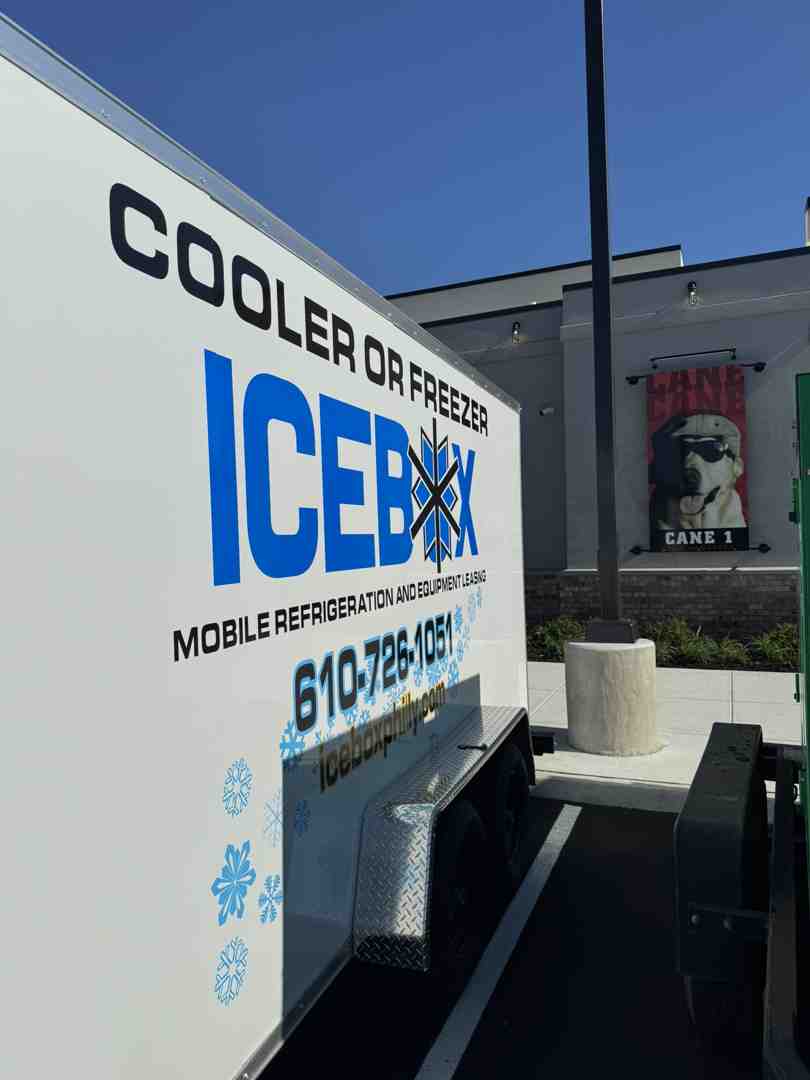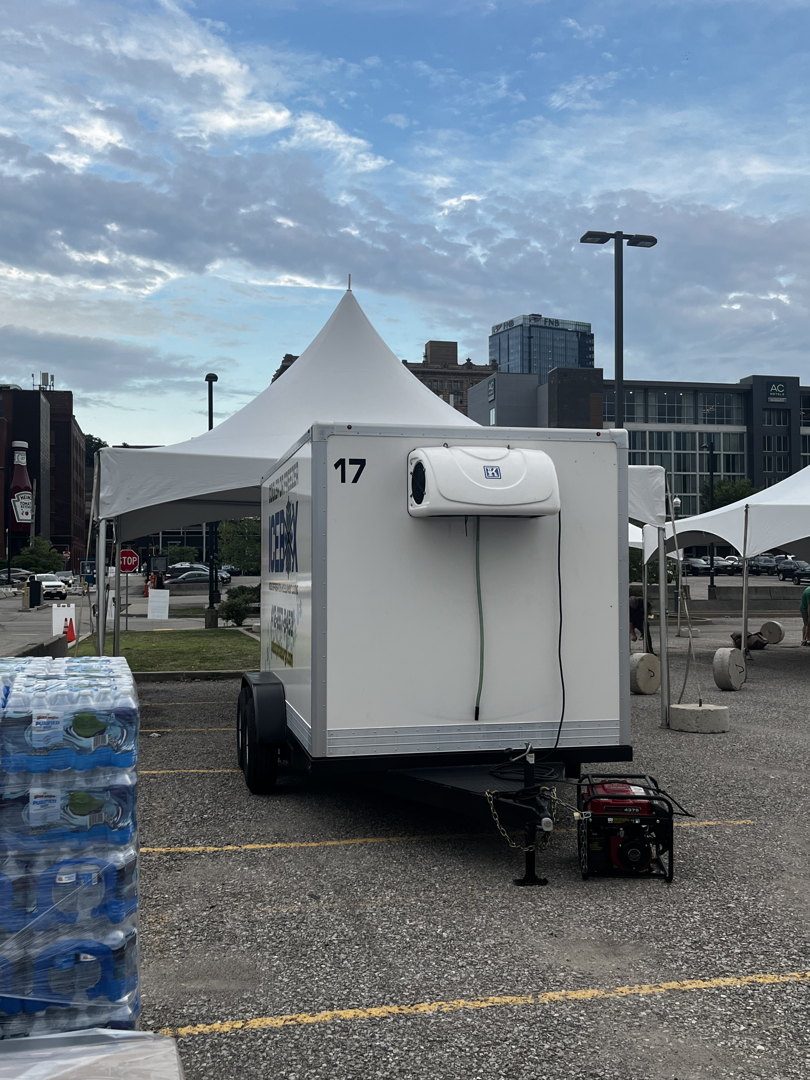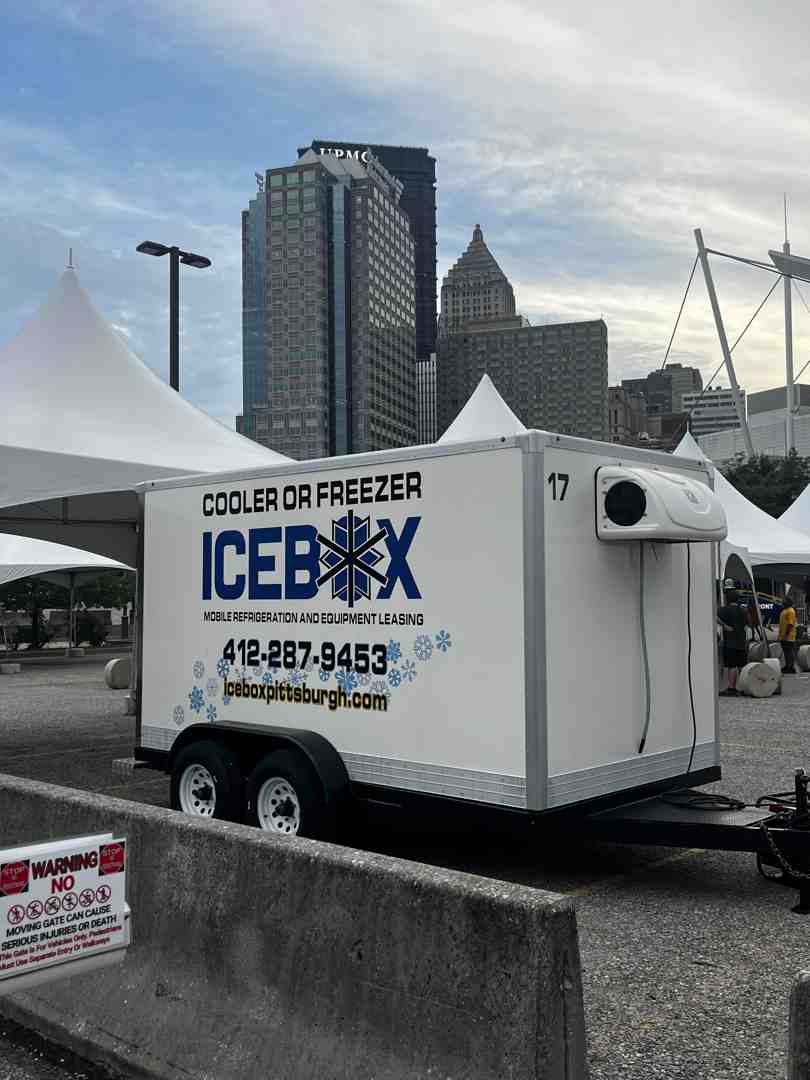The Essential Role of Cold Storage Units in Today’s Supply Chain
In logistics, cold storage units are the guardians of temperature-sensitive products like fresh produce, medicine, and even fine art. Without these vital storage systems, such items would rapidly degrade, compromising quality and safety. Whether you're storing creamy cheeses or crucial vaccines, better preserving product integrity is always the goal.
Here's a snapshot of why cold storage is indispensable:
- Protects quality: Maintains product freshness and extends shelf life.
- Ensures safety: Crucial for preventing spoilage and contamination.
- Supports logistics: Allows global distribution of sensitive goods.
These units are fundamental for industries ranging from food to pharmaceuticals, ensuring that temperature-sensitive products reach customers in perfect condition. As consumer demand for fresh and health-conscious options rises, cold storage units play an increasingly pivotal role in meeting these needs. The expansion of this sector is fueled by changing consumer preferences and growth in e-commerce, making efficient and flexible cold storage solutions more critical than ever.

Essential cold storage units terms:
What Are Cold Storage Units?
Cold storage units are specialized facilities designed to keep temperature-sensitive products at optimal conditions. They are essential for preserving the quality and safety of various goods, from fresh produce to pharmaceuticals. By maintaining precise temperature control, these units help prevent spoilage and extend the shelf life of products.
Types of Cold Storage Units
When it comes to cold storage units, there are several types that cater to different needs. Let's explore three popular options: walk-in coolers, refrigerated containers, and refrigerated trailers.
Walk-In Coolers
Walk-in coolers are large, room-sized units often found in restaurants, supermarkets, and warehouses. They are perfect for businesses that need to store large quantities of perishable goods at temperatures between 33° and 55° F. These units offer:
- Large capacity: Ideal for storing vast amounts of products.
- Precise temperature control: Ensures consistent cooling, even with frequent door openings.
- Energy efficiency: Modern systems consume less energy, reducing utility costs.
Refrigerated Containers
Refrigerated containers are versatile and highly customizable. These units are essentially shipping containers with cooling systems, making them suitable for a wide range of applications. They can maintain temperatures as low as -30° F, making them perfect for storing sensitive items like pharmaceuticals and seafood. Key features include:
- Mobility: Can be placed inside a warehouse, outside, or on a trailer chassis.
- Customization: Options like different floor types and remote temperature monitoring.
- Flexibility: Available in various sizes, typically between 10 and 40 feet long.
Refrigerated Trailers
Refrigerated trailers are mobile units that can be easily transported and set up wherever needed. They are often used for events, temporary storage, or businesses requiring flexibility. These trailers can be backed up directly to a loading dock, making them convenient for loading and unloading. Highlights include:
- Ease of transport: On wheels for easy mobility.
- Dock level access: Facilitates the use of pallet jacks and forklifts.
- Temperature range: Capable of maintaining temperatures from below 0° F to 75° F.
Each type of cold storage unit offers unique advantages, making it crucial to choose the right one based on specific storage needs and business requirements. Whether it's a stationary walk-in cooler or a mobile refrigerated trailer, these units are indispensable for keeping products fresh and safe.
How Cold Storage Units Work
Cold storage units are fascinating systems that keep your ice cream from melting and your vaccines effective. But how do they achieve this? Let's break down the magic behind these cooling wonders.
The Refrigeration System
At the heart of every cold storage unit is the refrigeration system. Think of it as the backbone that keeps everything cool. This system works tirelessly to maintain the right temperature, ensuring products stay fresh and safe.
The Coolant
Imagine the coolant as the lifeblood of the refrigeration system. It flows through a network of tubes and components, absorbing heat and carrying it away. This coolant is usually a special liquid, like anhydrous ammonia, that can easily change from a liquid to a gas and back again.
The Compressor
The compressor is the powerhouse of the system. It's like the heart, pumping the coolant through the network. It compresses the coolant, raising its temperature and pressure, before sending it off to the next stage. Without the compressor, the coolant wouldn't be able to circulate effectively.
The Evaporator
Finally, the evaporator is where the real cooling happens. Here, the cold refrigerant passes through tubes while a fan blows air over them. This process cools the air in the storage space, dropping the temperature to the desired level. It’s a bit like the air conditioner in your car, but on a much larger scale.

These components work together in harmony to create the perfect environment for preserving temperature-sensitive products. Whether it's keeping lettuce crisp or vaccines viable, cold storage units are essential for maintaining product quality and safety.
Benefits of Cold Storage Units
Cold storage units are more than just big refrigerators. They play a critical role in maintaining product quality, extending shelf life, and ensuring safety for a wide range of products. Let’s explore these benefits in detail.
Product Quality
Cold storage units are vital for keeping products at their best. By maintaining precise temperatures, these units prevent spoilage and preserve the freshness of goods like fruits, vegetables, meats, and dairy. For example, fresh produce stored at the right temperature retains its flavor and texture longer, ensuring consumers get the best quality possible.

Shelf Life
One of the most significant benefits of cold storage units is their ability to prolong the shelf life of products. By slowing down chemical reactions and microbial growth, cold storage helps keep perishables like seafood and dairy products safe and consumable for extended periods. This is crucial for businesses aiming to reduce waste and maximize their inventory's value.
Safety
Safety is a top priority for any business handling perishable goods. Cold storage units provide a controlled environment that minimizes the risk of contamination and spoilage. For instance, pharmaceuticals like vaccines require strict temperature control to remain effective. Proper cold storage ensures these products are safe for use, protecting public health.
In the food industry, maintaining the right temperature prevents the growth of harmful bacteria, safeguarding consumers from foodborne illnesses.
Cold storage units are indispensable in various industries, from food to pharmaceuticals, ensuring that products remain in peak condition while enhancing safety and reducing waste. As demand for cold storage continues to grow, innovations in this field will only further improve the quality and safety of temperature-sensitive products.
Next, we'll explore how Icebox provides exceptional cold storage solutions custom to meet diverse needs.
Cold Storage Units by Icebox
When it comes to flexible and reliable cold storage solutions, Icebox stands out with its innovative offerings. Our mobile refrigeration units are designed to meet the diverse needs of businesses, ensuring that your temperature-sensitive products are stored safely and efficiently.
Mobile Refrigeration
Icebox offers state-of-the-art mobile refrigeration units that are perfect for events, trade shows, or any location where temporary cold storage is needed. These units can be delivered and set up almost anywhere, providing a convenient and effective solution for businesses on the move. Whether you're hosting a festival or need extra storage at your restaurant, our mobile units ensure your products stay fresh.
24-Hour Service
We understand that the need for cold storage doesn't stop at the end of the business day. That's why Icebox provides 24-hour service, ensuring your goods are monitored and maintained at the right temperature around the clock. Our team is always ready to assist, offering peace of mind that your products are in safe hands, no matter the time or place.
110-Volt Units
Our cold storage units are designed with convenience in mind. They run on a standard 110-volt power supply, making them easy to integrate into your existing setup without the need for special electrical installations. This feature not only simplifies the setup process but also makes our units more accessible to a wide range of businesses, from small cafes to large catering companies.
With Icebox, you're not just getting a cold storage unit; you're getting a partner committed to keeping your products safe and fresh. Our mobile refrigeration solutions, combined with our 24-hour service and user-friendly 110-volt units, make us the go-to choice for businesses looking to improve their cold storage capabilities.
Next, we'll address some frequently asked questions about cold storage units to help you make informed decisions.
Frequently Asked Questions about Cold Storage Units
What is the difference between cold storage and frozen storage?
Cold storage and frozen storage both serve the purpose of preserving products, but they do so in different ways.
Cold storage is used for short-term preservation. It maintains products at cool temperatures, typically just above freezing. This method is ideal for items like fresh produce and dairy, where mild cooling is enough to slow down spoilage.
Frozen storage, on the other hand, is for long-term preservation. It involves keeping products at temperatures below freezing. This is crucial for meat, seafood, and certain pharmaceuticals, as it halts biological processes and preserves the items for extended periods.
What is the cost of setting up cold storage?
Setting up cold storage involves several factors that can impact the overall investment.
Initial Costs: The cost to install a cold storage unit can vary widely. Basic setups might start around $30,000, but more advanced units with higher capacities and specialized features can be significantly more expensive.
Additional Expenses: Other costs include land acquisition if needed, advanced refrigeration technology, and regular maintenance. These can add to the budget, so plan accordingly.
How does cold storage prolong shelf life?
Cold storage is a powerful tool for extending the shelf life of perishable items by affecting microorganisms and chemical reactions.
Microorganisms: Cold temperatures slow down the growth of bacteria and fungi that cause spoilage. By keeping these at bay, products remain safe and fresh for longer.
Chemical Reactions: Cooling also slows down chemical reactions that lead to food degradation. This helps in maintaining the quality and nutritional value of products over time.
By understanding these aspects, you can better appreciate how cold storage units play a vital role in preserving product integrity.
Conclusion
As we've explored, cold storage units are essential for businesses that need to keep temperature-sensitive products fresh and safe. At Icebox, we specialize in providing top-notch cold storage solutions along the East Coast. Our services ensure that your products maintain their quality from the moment they're stored until they reach their final destination.
Icebox: Your Partner in Cold Storage
Icebox is committed to offering mobile refrigeration and cold storage rental services that cater to your specific needs. With our 24-hour emergency service, you can rest easy knowing that help is just a call away, anytime you need us. Our easy-to-set-up, 110-volt walk-in units make it simple to get started, without the hassle of complicated installations.
Whether you're dealing with a temporary storage need or require ongoing support, our mobile solutions provide the flexibility and reliability you need. Plus, our strategic locations along the East Coast mean that we're always nearby, ready to deliver the cold storage solutions you require.
The Importance of Cold Storage Solutions
When supply chains are more complex than ever, cold storage solutions are not just a convenience—they're a necessity. By choosing the right storage option, businesses can reduce waste, improve customer satisfaction, and ensure that products remain in peak condition. Whether you're storing fresh produce, pharmaceuticals, or other sensitive items, having a reliable cold storage partner is crucial.
At Icebox, we understand these challenges and are here to help you steer them with ease. Trust us to be your go-to source for cold storage needs, and experience the peace of mind that comes with knowing your products are in good hands.
For more information on our services and to find the perfect rental option for your needs, visit our Icebox locations page.
Thank you for considering Icebox for your cold storage solutions. We look forward to serving you and helping your business thrive!
Choose the perfect rental option
Explore our wide range of trailer rentals and find the one that suits your needs
%20(2)-min.webp)
Discover New Blog Posts
Stay updated with our latest blog content.

_compressed.avif)



